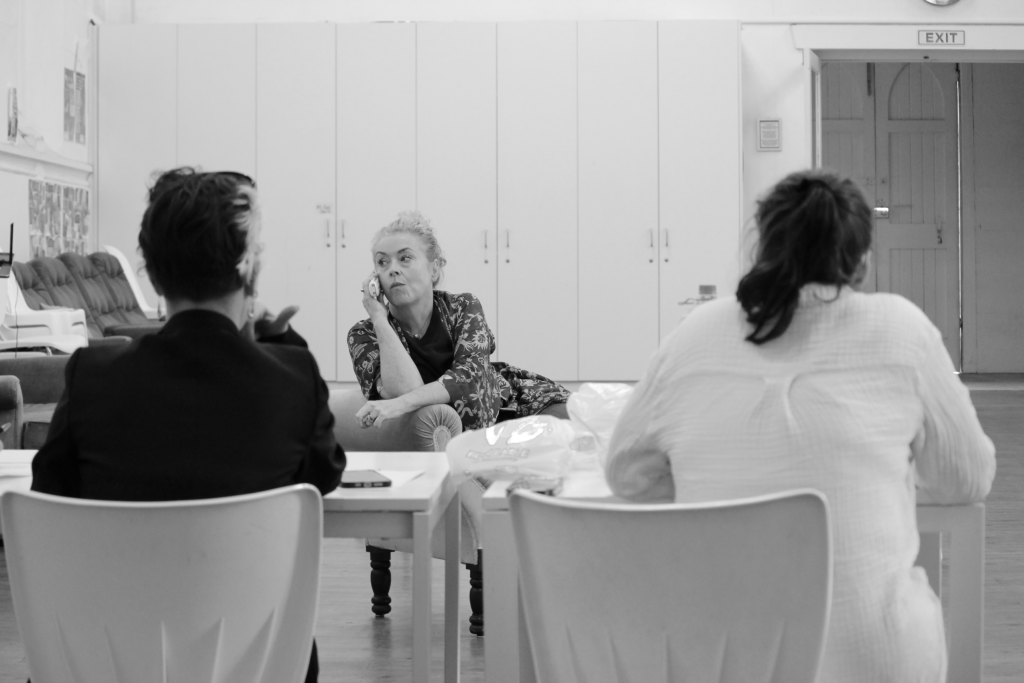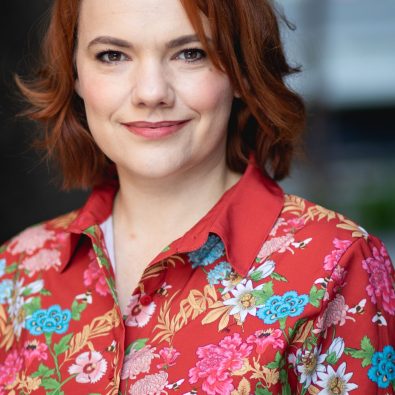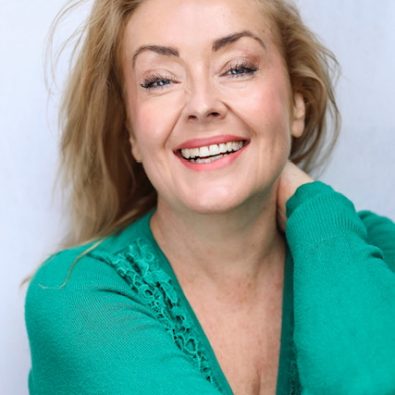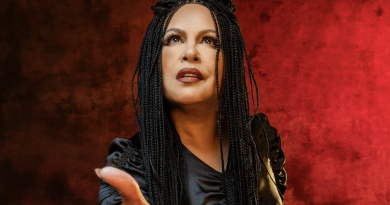Erica Lovell and Lucy Miller on THE FEMALE OF THE SPECIES
In Rogue Projects’ bold new production of The Female of the Species by Joanna Murray-Smith, feminist icon Margot Mason faces the consequences of her life’s work, brought to life in a sharp, take-no-prisoners comedy.
Set in a secluded country cottage, the story begins with Margot, a renowned feminist writer, struggling with writer’s block. However, the arrival of a fervent fan with a gun sets off a cascade of confrontations—forcing Margot to defend her ideals, not only to her visitor but to her family, publisher, and an unexpected taxi driver. Nearly two decades since its original premiere, this satire continues to explore the complicated relationship between feminist theory and its real-world effects, all while keeping its razor-sharp wit.
At the helm of this fresh take is director Erica Lovell, an accomplished artist with extensive experience across both theatre and education. Erica currently serves as Head of Education and Associate Director of Poetry in Action, where she has directed six works touring schools. Her directing credits include Boy Out of the Country, Gravity Guts, and Wil and Grace. As an actor, Erica’s stage career spans roles in Little Women, Spring Awakening, and A Little Night Music.. She brings her deep understanding of storytelling and character dynamics to this production, ensuring that the humour and themes of the play resonate with contemporary audiences.
Starring as Margot Mason is Lucy Miller, a London-trained actor who received a full scholarship to study at the prestigious Italia Conti Academy of Theatre Arts. With a BA in Theatre & Film and a DipEd in Drama/English, Lucy’s career spans theatre, film, and television. She has performed in productions such as Bonnie & Clyde, Sweeney Todd, and Shakespeare’s Will, among many others, and has graced stages from Edinburgh Fringe to the Old Fitz Theatre.
What drew you to The Female of the Species, and why did you feel it was important to bring this play to audiences today?
Erica: I fell in love with the play about ten years ago. It was around the time I was working on Women In Theatre & Screen, and I was reading a lot of feminist plays. At the time I was thirty, and collaborating with older and younger women. The “old guard” had fought the fight for women’s representation before, and I think in my naivety I thought “well, it didn’t stick, did it? You must have done something wrong. So let us take it from here.” So I liked that the play critiques “old school feminism” because that’s what I was doing at the time. Now I’m forty, not quite old enough to be “old guard” and not quite young enough to be the most revolutionary voice in the room! I understand what it takes to interrogate your own thinking, and let go of ideas you once held dear. It’s tough. So I have a lot more empathy with Margot now. The play isn’t as clear cut as “old feminism bad, new feminism good” – it asks us to recognise that we stand on the shoulders of giants, but eventually those shoulders weaken as the weight shifts, and then we need new giants. That’s how evolution works. I love that nuance and compassion. We can’t throw out everything that came before because X feminist said Y offensive thing – we need to be able to say “ok. I don’t agree with that, and I will challenge you on that and even fight you on that, but I see the value of the work you did, and with respect and gratitude for what you did to get me here, I’m going to move forward even if you aren’t.”
Lucy: It’s hilarious. The wit and sharpness of Joanna Murray-Smith’s writing, her searing one liners and hysterically drawn characters. Particularly Margot, she is too much fun to play and it really is a cracker of a role. It tackles feminism in a way that’s both irreverent and thought-provoking. The conversation around feminism is complex and still controversial and no-one wants to be lectured in a theatre so its clever in that it serves the feminist movement’s history, its successes, and its contradictions—on a plate of farce and fun. I’ve been re-examining the ‘F’ word too and how its changed in the last 20 years having more awareness around intersectionality and listening to all voices from all women.

How do you balance the play’s humour with its sharp commentary on feminism and ideology?
Erica: Oh it’s so easy! Progress requires humour. It’s so much easier to let go of ideas if you can laugh at yourself. If you can say “woah, I can’t believe I believed that – lol – now I know better” rather than clinging to a notion that doesn’t work anymore because you’re afraid to be wrong. It’s a lighter, less exhausting way to live! I can see myself in every ridiculous moment in the play, I’ve struggled with every conundrum Molly and Margot grapple with in one way or another, and seeing these characters struggle and fail and succeed in such a hilarious way is motivating to keep on struggling with myself. Humour humanises. So that’s the WHY – as for HOW? I trust the writing. I don’t resist the complexity of it, the ridiculous and extreme changes of mood and conviction that happen throughout the play, and I support my cast to do the same.
How did you approach portraying Margot, and what aspects of her personality resonate most with you?
Lucy: I did a deep dive into all the iconic, feminist intellectuals , particularly Germaine Greer and Betty Friedan. I talked to my mum and her generation of women who really did find themselves changing and confronted with these ideas for the first time, by Greers The Female Eunuch. Margot is so fascinating because she’s this iconic feminist intellectual who finds herself confronted with her own ideological shortcomings. What resonates most with me is her unapologetic nature. She’s charismatic, fierce, egocentric, outrageous and brilliant and refuses to shrink in the face of her mistakes. But moments when we see the cracks, not for long though, she’s a survivor.
What challenges have you encountered in bringing your character to life, particularly as she navigates themes of feminism and her own contradictions?
Lucy: The biggest challenge has been balancing Margot’s searing wit with the gravity of the themes she’s grappling with and not turning her into a cliché.. Balancing the ‘funnies’ without losing truth of her huge character. She’s a character who embodies a lot of contradictions—on the one hand, she’s an icon of feminist thought, but on the other, she’s out of touch with how feminism has evolved, out of touch with her daughter and real women. She’s been carried away by her huge success, she’s made compelling statements, has changed her mind often, but what happens to the followers who change their lives on the strength of her ideologies? What if she’s asked to apologise? Navigating all those contradictions of her and others has been great.
How has working with a diverse and talented cast influenced the direction of the show?
Erica: Short answer – it hasn’t. Long answer… I’ve been teaching in different capacities for most of my life, most recently as a high school English and drama teacher. What we learn as teachers is to be responsive and sensitive to the needs of our students to create an environment where they can do their best work. Directing is exactly the same. All my actors come with different backgrounds, and if I want the best out of them, I need to be responsive to these differences and change how I direct to meet our common goal—excellent performances. This could mean being sensitive about certain topics (like extremism, which is a theme in the play), changing up my approach (physical language might work for one, while intellectual interrogation might work for another), checking in personally, and being comfortable being wrong. What I don’t do is shy away from the work or the play. Questions need to be asked, discussions had, and notes given. If we’ve established mutual respect through responsive, compassionate interactions, those difficult conversations become easier. When I say “it doesn’t” —I mean there’s no such thing as a homogenous cast, just as there’s no homogenous classroom. Even with a cast of white middle-aged men with forty years’ experience, they would all bring different experiences, strengths, and needs, and my job would still be to understand and support them to do their best work. Differentiation, trauma-informed practice, and kindness benefit everyone, not just those we see as “different.” The diversity conversation encourages approaches that help everyone and improve practice and art. Sensitivity is helpful for everyone. I learned more about directing from teaching than from being an actor.
What do you think the play says about the evolution of feminist discourse, and how do you hope your performance contributes to that conversation?
Lucy: I think the play shows how feminist discourse is always changing, Its not over, its more nuanced, its different for women of different cultures, education, heritage, orientation and identity and it certainly hasn’t been inclusive. Its a conversation that needs to include all woman. While it has done incredible work, it’s also far from perfect. It reminds us that no ideology is immune to criticism, my performance as Margot sparks conversation around these tensions, particularly around her and the conversation around ‘white woman feminism’. Through Margot, I want to reflect the complexities of feminist thought—the errors of judgement, the limitations of ideology. As Joanna MS said ‘Feminism is a big girl now- its strong enough to laugh at itself.
The Female of the Species plays at the Old Fitz Theatre from November 1st, 2024.
For tickets and more information, visit the Old Fitz website.





